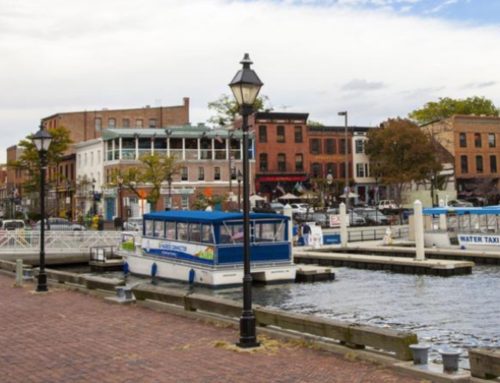Excerpt from the Dispatch:
A truck ban proposed for Baker Street has been delayed as officials work to adjust existing language in the town code.
When staff presented town officials with a resolution that would prohibit truck traffic on Baker Street Monday, Councilman Thom Gulyas expressed concerns with the code’s current definition of truck. As it is written, the code allows for the prohibition of trucks but it defines truck as any vehicle weighing more than one ton.
“I don’t know of one car that doesn’t exceed one ton,” Gulyas said. “My pickup is three and half tons.”
Concerns regarding the deteriorating condition of Baker Street and the increasing number of vehicles traveling on it have been shared with Berlin officials several times since a portion of the adjacent Harrison Avenue was closed to the public last summer. The Adkins Company, which owns the section of Harrison Avenue in front of the store, closed that piece of the road in June of 2016 when town officials refused to buy it for the company’s asking price of $400,000.
Since then, vehicles that would have normally taken Harrison Avenue have been using Baker Street and West Street. Trucks, unable to make the tight turn at the intersection of West and Broad streets, typically travel down once quiet Baker Street. Residents say they’re loud, they often speed and they’re damaging the historic road.
In an effort to prevent further damage to the street, town staff developed the resolution proposed Monday. According to Town Administrator Laura Allen, it would prohibit trucks on Baker Street unless they were making deliveries to properties on Baker Street.
“Trucks could not use Baker Street to travel through Baker Street but they could make deliveries to the folks that live on Baker Street,” Allen said.
Gulyas said he didn’t have any issues with prohibiting trucks on Baker Street but believed the code should be adjusted first.
“We’ve got to fix something somewhere,” Gulyas said.
Dave Gaskill, the town’s attorney, said the code defined a truck as a vehicle, regardless of the number of axles, with a gross weight exceeding one ton.
While officials discussed ways the resolution could be amended so that it wouldn’t keep residents from driving their cars down the street, Gulyas said he’d be more comfortable adjusting the language in the code first and then reconsidering the truck prohibition.
“It sounds like we have to start from scratch,” Allen said.
Gaskill is expected to work on a new definition of truck so that the council can host a first reading for the change at the next council meeting. Because any changes require a first reading and then a public hearing, the issue of the truck ban is not expected to be reconsidered before the end of May.
While that Baker Street initiative was delayed, the council on Monday did approve spending $20,000 for the design of repairs to the street. Allen said that while this initial funding was for the design work, the town intended to spend at least $120,000 repairing the concrete center of the street and replacing the asphalt along its sides. As residents have requested, the town will work to ensure the street retains its unique oyster shell concrete.
“The challenge is finding someone who does that kind of work,” Allen said.
Robert Poli, a member of the town’s historic district commission, said he was pleased the street would be repaired with oyster shell concrete in keeping with its history. He suggested that the historic district commission, which is tasked with reviewing exterior changes to buildings within the district, be given the chance to consider changes to streets within the district.
“It’s part of the historic nature of the town …,” he said. “If we want to have people attracted to the area we have to maintain that.”
Residents in attendance expressed appreciation for the coming repairs.
“We’re looking forward to what you guys come up with,” resident Todd DeHart said.
Resident Doug Parks thanked officials for approving the design funding but encouraged them to continue working to restore public access to Harrison Avenue.
“This is in the council’s hands,” he said. “It needs to be open.”


